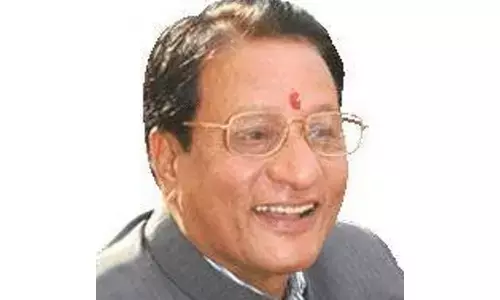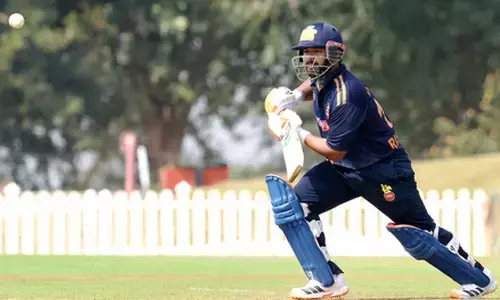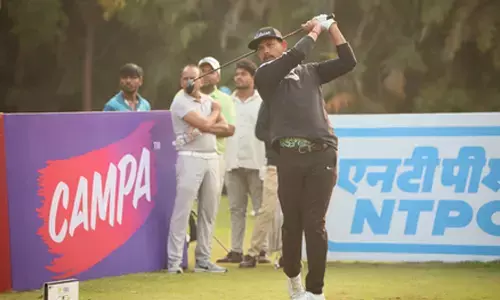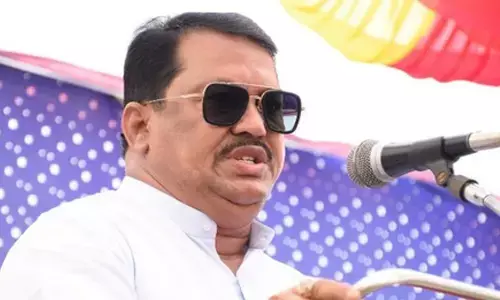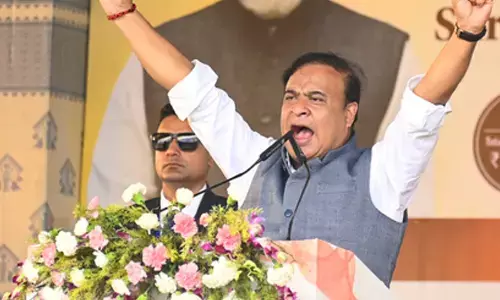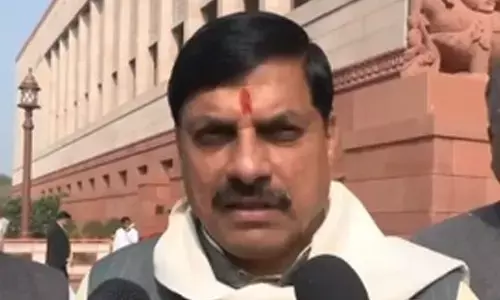Modi’s Pakistan policy: Inventive, yet dicey
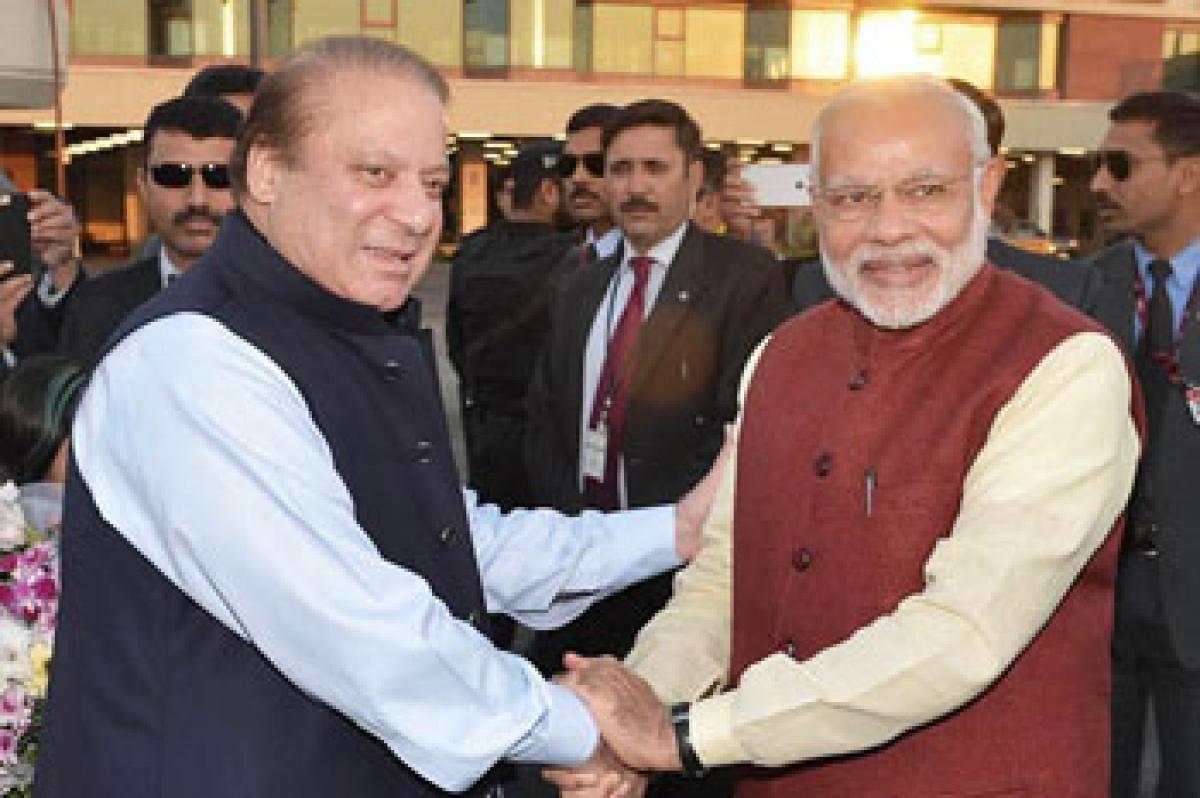
The most glaring thing about Prime Minister Narendra Modi’s brief visit to Pakistan, after and despite all the reports and analyses welcoming it, is that it remains a risky venture lurching between hope and disaster.
 The question to ask is were Modi’s visit to Lahore and earlier that of External Affairs Minister Sushma Swaraj to Islamabad part of an attempt at course correction?
The question to ask is were Modi’s visit to Lahore and earlier that of External Affairs Minister Sushma Swaraj to Islamabad part of an attempt at course correction?
If yes, do they expect the people on both sides of the border to conclude that anything said during the election campaigns and in political and social discourse can be just undone with a sharp diplomatic U-turn?
Can a nation determine its relationship, especially to a neighbour that has been difficult, but cannot be wished away, with a “hota-hai-chalta-hai” approach? It is a fragile relationship that the guns on the border, as per past record, can blast anytime. Modi must convince the Sangh Parivar
The most glaring thing about Prime Minister Narendra Modi’s brief visit to Pakistan, after and despite all the reports and analyses welcoming it, is that it remains a risky venture lurching between hope and disaster.
Linking it to the domestic affairs may seem unfair, but the contrast is too stark to ignore. Till recently, Modi during the Bihar polls campaign, and his colleagues from the Bharatiya Janata Party and its affiliates for much long had been using Pakistan as a swear-word to target critics, especially those belonging to a community. Film celebrities, writers, artistes and others who had complained of an atmosphere of ‘intolerance’ were asked to “go to Pakistan.” Even the proverbially short public memory cannot overlook these invectives.
The Modi Government, its analysts and supporters could not be unaware of the public discourse across the border that did everything, tit-for-tat, to match the Indian diatribe, verbal and written, from public platforms and in mainstream and social media.
The question is not who started it all or who is more responsible. Such exchanges between India and Pakistan have been too frequent to be counted. At least this time, sections of Indian leadership excelled themselves in this toxic discourse.
The question to ask is were Modi’s visit to Lahore and earlier that of External Affairs Minister Sushma Swaraj to Islamabad part of an attempt at course correction? If yes, do they expect the people on both sides of the border to conclude that anything said during the election campaigns and in political and social discourse can be just undone with a sharp diplomatic U-turn? Can a nation determine its relationship, especially to a neighbour that has been difficult, but cannot be wished away, with a “hota-hai-chalta-hai” approach? Having made these points, the visit should be welcome.
Modi is fond of, and adept at, turning a diplomatic interaction into a personalised initiative. Critics call it theatrics, but assuming he means well and has met with a fair success, can visiting Prime Minister Nawaz Sharif’s home on the latter’s birthday and bless his grand-daughter at her wedding, help cement the ever-fledgling ties? One does hope he succeeds, but also that he does some explaining, too.
It is difficult to hazard a guess whose effort at explaining will be more difficult. Nawaz would need to explain his hosting a man his media has reviled as “Hindu extremist.” Perhaps, his task would be easier, assuming he has the nod of the military establishment that determines the India Policy. He had, even braving the conservative classes and the Islamists, cleverly maintained a consistent “let’s talk and resolve issues” public stance with India.
Modi will have to convince the RSS and its affiliates. The flak L K Advani and Jaswant Singh for praising Jinnah is a reminder of the pitfalls in being conciliatory to Pakistan. Quick follow-up with a time-table of bilateral interactions for 2016 underscore the urgency and earnestness for both. The “comprehensive” dialogue will touch upon religious shrines and the hapless fishermen from Gujarat and Karachi.
Fielding two ‘hostile’ neighbours, India and Afghanistan, Sharif has a difficult task. His ties with Kabul under President Ashraf Ghani have soured because the latter holds Pakistan responsible for the daily attacks the Taliban carry out on large swathes of Afghan territory. Ghani thinks, very rightly, that the Taliban are operating from Pakistani soil, with Pakistani help, since Islamabad wants to set the agenda for Kabul.
In this context, India hosting the next “Heart of Asia” conference signifies that both India and Pakistan have a role in Afghanistan. From Pakistan’s standpoint, India has always been the unwanted intruder in Afghanistan. One would like to see if Nawaz will permit Indian goods to travel through Pak territory to Afghanistan.
Modi was in Kabul after meeting President Vladimir Putin in Moscow when Afghanistan, along with the current trouble-spots, Iraq and Syria, figured in their parleys. Iran, Russia and India have a lot in common on Afghanistan. Was Modi in the global diplomacy mode at the three capitals?
How Islamabad looks at Modi’s Kabul visit and how Kabul looks at Modi visiting Lahore, thereafter, is something the United States would be keen to know. For, the talk in New Delhi’s diplomatic circles is that leaders of all three nations are meeting at American behest.
Also, not at all surprising and given much credibility is the talk that the US (read Obama, keen on yet-another diplomatic coup after reaching out to Iran and Cuba while still in office) has been nudging all concerned to talk.
The other part of this talk is the burgeoning India-USA ties. Obama is supposed to have assured the Indian PM that if India settles the Kashmir dispute and normalises ties with Pakistan, a permanent seat in the UN Security Council could be India’s. Does all this explain Modi’s Lahore visit? Only the time will tell. It is all dicey. Improving ties with Pakistan is fraught with dangers. Modi’s party shares power in Jammu and Kashmir, the biggest of the unresolved disputes. That government has to be sustained and given credibility through good governance even as Hurriyat, the Pakistan-created pressure group of Kashmiri separatists, looks for a role to play.
There are too many cooks in the kitchen of India-Pakistan and India-Pakistan-Afghanistan. Modi sent out the right message from Kabul to Islamabad about India being in Kabul to “contribute, not compete” and more importantly, about “terrorism flowing from across the border.” Pakistan’s role in Afghanistan is a reality everyone is acquainted with, but is helpless. India’s ‘contribution,’ with lack of a common border being a constraint, remains crucial but limited.
India needs to play all cards carefully and well at all times vis-a-vis Pakistan. One must welcome any attempt at rapprochement with Pakistan. Not talking cannot be a permanent option for any two neighbours. The state of no-war-no-peace that has governed the relationship is not good.
While Indian media enthusiastically declared that Modi had made ‘history,’ Pakistan was cautious. For instance, it was not the top story in Dawn newspaper which saw it more as a ‘photo-op.’ Modi did something his predecessor Manmohan Singh could not. Singh did not have the support from the political and security establishment that almost scoffed at his desire to visit his village home across the border. It was an opportunity lost.
Despite years of relative peace along the border, the Congress did not help Singh “create history.” It lived in perennial fear of BJP upping the ante. It is ironical that a BJP government is attempting to do that. India’s relations with Pakistan, it is often theorised, can improve only by a “Hindu nationalist” government not burdened by the Partition baggage that the Congress carried. For that Pakistan must be military-ruled, not by the Muslim League that worked for Partition.
On same page as his military chief, Gen Raheel Sharif, ostensibly on overtures to India, Nawaz, a post-Partition leader like Modi is, almost meets that criterion despite leading the Muslim League. Will it work?
Hoping it does, one cannot but end on a cautious note. It is a fragile relationship that the guns on the border, as per past record, can blast anytime. Modi must convince the Sangh Parivar. RSS’ Ram Madhav has talked of “Akhand Bharat,” albeit “with consent” – not something that will go down well with the neighbours. Nawaz must convince the military and the Islamists. Past history would have to be ignored, if not undone, to “make history” that lasts.
By:Mahendra Ved








